Ko Tun Tun (48) has to travel frequently for his work in South East Myanmar and often to camps in rural and remote areas which are in forested areas and are prone to mosquitos. Since he never has the required long lasting insecticidal nets (LLINs) when he is camping in these places, he believes this is where he most likely contracted malaria.
He lives in a very rural area with poor access to health facilities. Most people in his village do not have LLINs or money to visit a state hospital. His job means that he is away from his family frequently and as a result has not able to seek treatment. On one of these trips he began to feel very ill and started getting fever and vomiting.
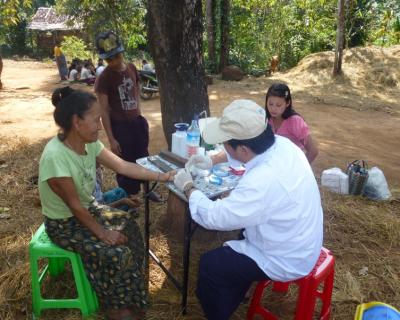
Back in Ko Tun Tun’s home village, a volunteer malaria worker trained and supported by IOM heard about his condition and carried out a Rapid Diagnostic Test (RDT). The test was positive, and Ko Tun Tun was immediately started on anti-malarial medicines supplied by IOM.
As his village was in an area prone to resistance to anti-malarial drugs, the volunteer had also been trained how to take a blood slide for examination under microscope. The volunteer then got in contact with IOM’s Malaria Microscopy Team in the township to alert them of the positive case.
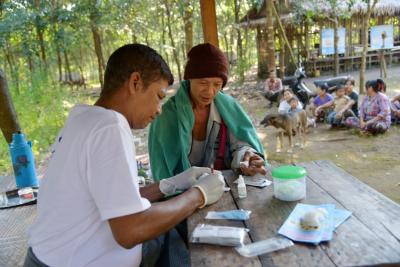
As part of IOM’s Day 3 Surveillance activities, the microscopist followed up with Ko Tun Tun on day 3 after starting treatment, to take another blood slide checking for malaria resistance. Although he felt much better, this blood slide was also positive for malaria even though he had taken all of his treatment thus far.
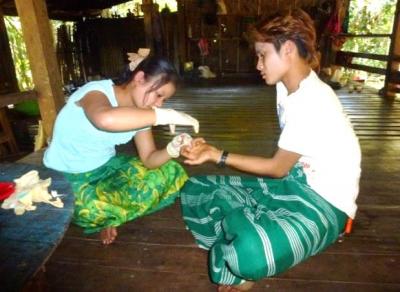
IOM immediately activated its day 3 management protocols and referred Ko Tun Tun to the township hospital for further treatment and alerted State Vector Borne Disease Control (VBDC) team for joint response activities. Together, IOM and the VBDC undertook rapid diagnostic testing of Ko Tun Tun’s neighbors, family and friends and took a travel history of where he had been in the previous 2 weeks.
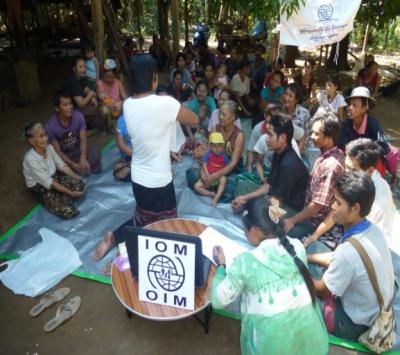
They also conducted health education in the area and distributed mosquito nets (LLIN) to everyone in the village for protection. After mapping where he had recently travelled, the joint IOM-VBDC team also conducted the same testing, education and protection measures in the border village.
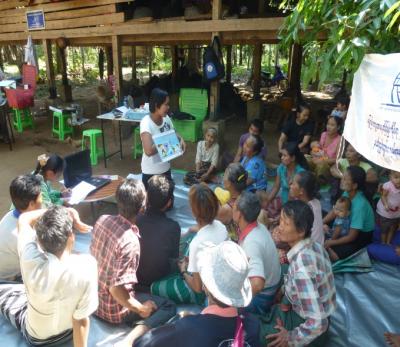
Luckily, all of the additional 95 people tested were negative for malaria and Ko Tun Tun made a quick recovery after second line treatment with his blood slides remaining parasite free. He has now become an advocate among his fellow border guard co-workers about the importance of malaria protection and knowing when and where to get testing, including making sure to follow treatment schedule so that they work.
Ko Tun Tun was very thankful for being able to access health treatment and said; “I am lucky they found me. I will now use a net wherever I sleep and tell my workmates to do the same. I am thankful for IOM supporting our village. Before we had no knowledge or any such health support.”
